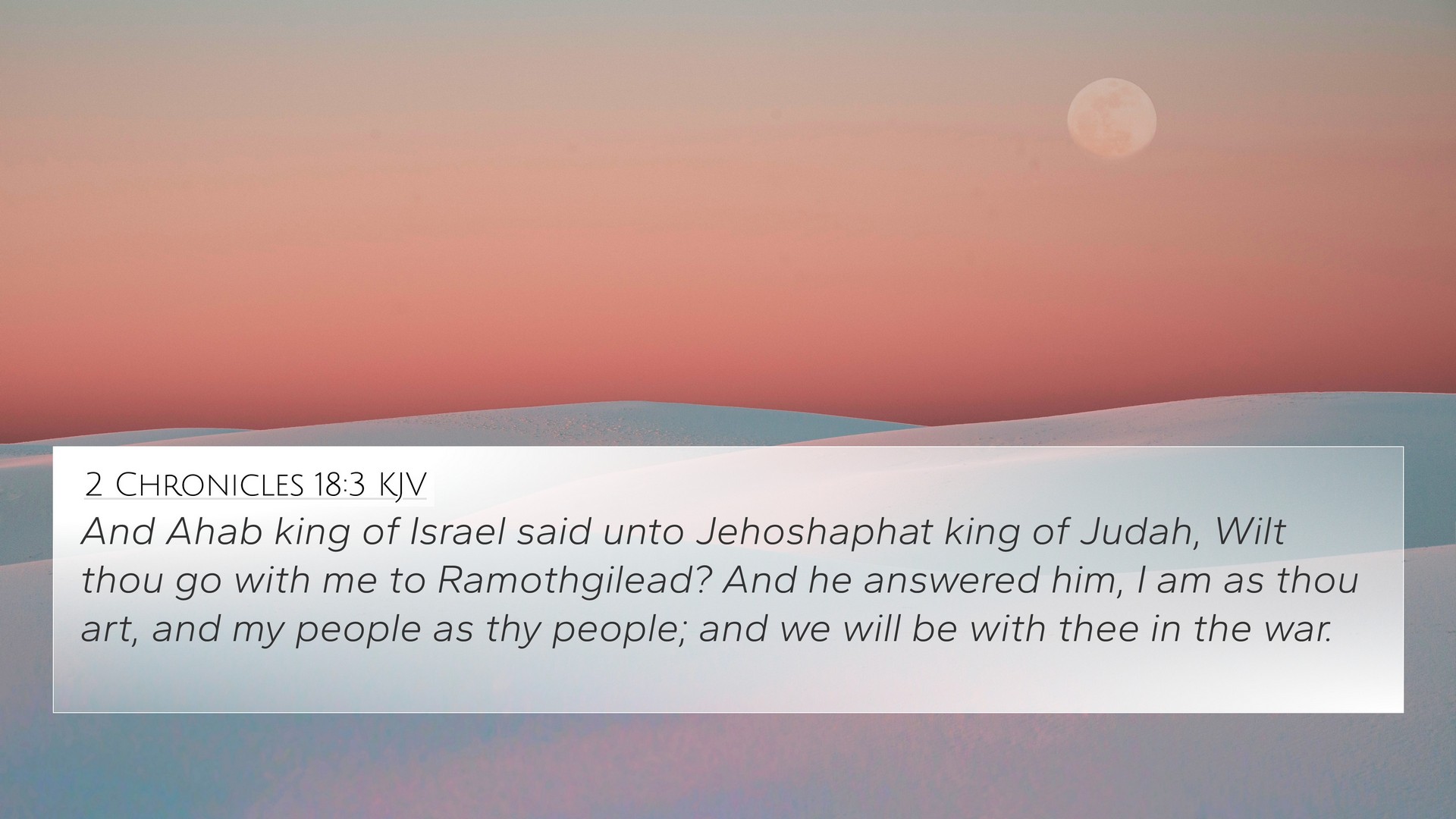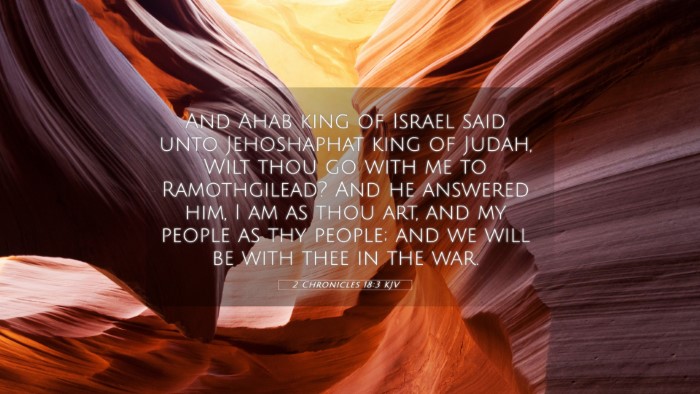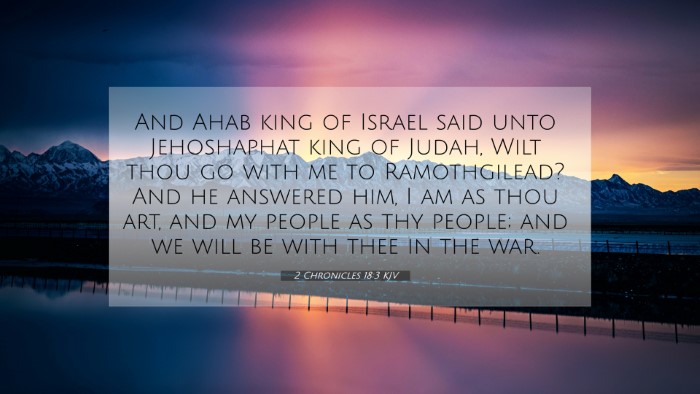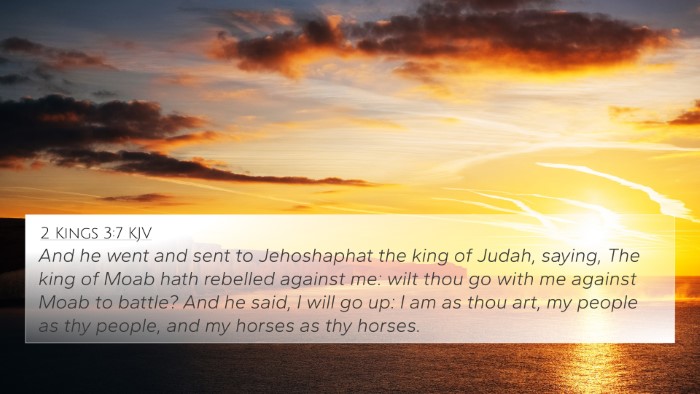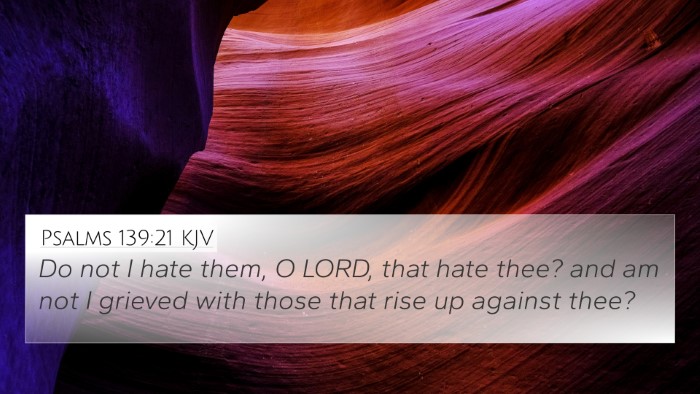Understanding 2 Chronicles 18:3
Verse: 2 Chronicles 18:3 states:
"And Ahab king of Israel said unto Jehoshaphat king of Judah, Wilt thou go with me to battle to Ramothgilead? And Jehoshaphat said to Ahab, I am as thou art, and my people as thy people; and we will be with thee in the war."
Summary of Context
This verse is set within a historical narrative detailing the alliance between King Ahab of Israel and King Jehoshaphat of Judah. The political context here illustrates the significance of unity between the two kingdoms in the face of external threats.
Commentary Insights
-
Matthew Henry:
Henry notes that Ahab's invitation to Jehoshaphat to join him in battle demonstrates an appealing desire for alliance amidst international strife. Jehoshaphat's compliant response indicates a willingness to unite forces, but raises questions about the spiritual implications of such alliances when not guided by God.
-
Albert Barnes:
Barnes emphasizes the urgency and importance of shared purpose in this alliance. He elucidates that Jehoshaphat's answer is reflective of a strong brotherhood, but also highlights the potential peril when one king’s decisions may lead the other into conflict without divine endorsement.
-
Adam Clarke:
Clarke points out how Jehoshaphat's positive response could stem from a desire for political stability and security. He underlines the necessity for wisdom and godliness in decisions, especially when engaging in matters of war and alliances.
Thematic Connections
The verse connects to various biblical themes, including:
- Importance of alliances and unity among God's people.
- The role of prayer and seeking God’s will in decision-making, particularly in matters of war.
- The dangers of compromising faith and values for political gain.
Cross-References
Here are biblical references that relate to and expand upon the themes found in 2 Chronicles 18:3:
- 1 Kings 22:4: Ahab gathers prophets to inquire about going to battle.
- 2 Chronicles 20:35-37: Jehoshaphat’s alliance leads to disastrous consequences.
- Amos 3:3: Emphasizes the need for agreement when walking together.
- 2 Corinthians 6:14: Advises believers against unequal yokes with non-believers.
- Proverbs 13:20: Shows the wisdom in choosing companions carefully.
- 1 Kings 18:17-18: The dynamics of leadership in Israel and its contrast with faithfulness.
- Micah 7:5-6: Highlights the complexities of trust in relationships during turmoil.
Practical Applications
Understanding this verse encourages modern readers to:
- Consider the spiritual implications of alliances made in personal and community life.
- Seek God’s guidance in decisions related to significant relationships and actions.
- Examine one's motives for unity—whether divine or self-serving.
Conclusion
2 Chronicles 18:3 provides valuable insights into the nature of alliances and the significance of mutual commitment underpinned by divine wisdom. By examining the relationships and decisions portrayed, we can gain a deeper understanding of how scripture speaks to issues of unity, faith, and divine direction. Through thoughtful cross-referencing and thematic exploration, believers can discover more profound relevance in their walk of faith.
